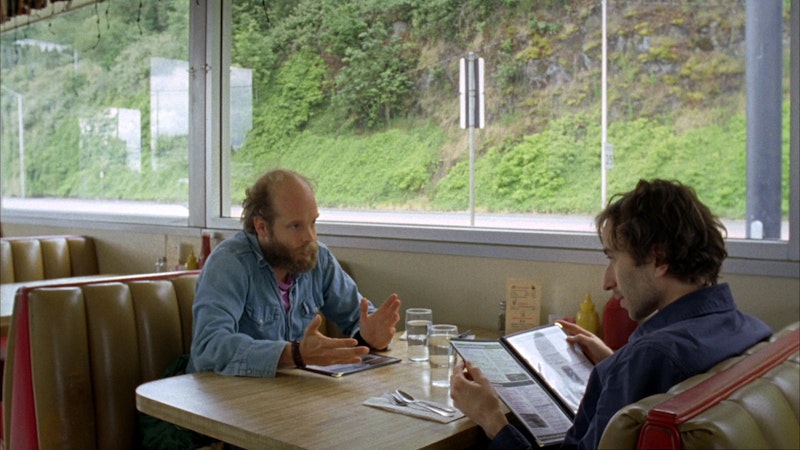When Old Joy was released in 2006, the diner they went to on Highway 30 was still there. By the time I was in high school it had turned into a Subway. When I was in college, it closed entirely. This, to me, was the quintessential image of the way the Portland area had changed in less than 10 years, with its clinging post-industry ultimately losing grip and slipping into strict decline—unless you lived within the Portlandia simulacrum. Not two days ago, I drove by that storefront only to see it had become the latest iteration of new desperations and cash grabs in lieu of the older blue-collar accommodations: a dispensary.
Since I left the state nearly a decade ago, smoke shops have started to dot the landscape of strip malls and gas station parking lots the way that Lucky Lil’s Casinos did across Montana. They’re already endemic, forever changing the tax-calculous of the state and the consumptive culture of its population. Finding it hard enough to stay awake as it is, and with a mild case of asthma, weed was never my thing, and it’s become yet another bit of alienation from my hometown that lost my attention the moment people lined around the block to pay $3.50 for a single donut when you could go to any given Vietnamese-run baker and get the best you’ve ever had for $10 a dozen. This isn’t to disparage the drug, its users, or social role—it’s harmless against any of its other psychoactive counterparts, even in the most extreme quantities (as is increasingly the fashion). And the end of the prohibition is an unequivocal good for society. What I’m observing is more a loss of preference.
While I can have a good enough time in Portland for a number of days, there’s plenty of depths and strange richness left in that increasingly vast city. However, I’ve started to get the sense that the culture isn’t for me. This can be an entitled standpoint; after all, why should it be catered to me? There’s the NIMBY conclusion I could land on here: I, the native, the born and bred, should be given preference of direction. That generalization would fail to consider the diversity of populations within the Portland I was born to, who’ve been systematically gentrified out of their neighborhoods for decades, in particular in the hip north of town.
My broken entitlement, however, isn’t indicative of some reorganization of hierarchy or oppression, but merely a shift in capital. When it became profitable to turn the city into an advertisement for itself, they did exactly that. Slowly the grassroots businesses and community cornerstones got replaced by the investment-minded idea of what those things were as images, before their glassy storefronts and full of bold fonts replaced all the remaining hardwood interiors. The city was reduced to ad copy, something for the fleeing New York yuppies and San Francisco work-from-homers to use as a playground. The food carts that were once indicative of the city’s charm got ripped up just like the homeless camps that helped people find apartments and job placements—now there’s an ultra-modern, $9 million-a-penthouse Ritz Carlton in their stead.
Highway 30 and its smoke shops are something different, though. There, people smoking isn’t so much a vestige of the city’s old bohemian culture, but another sedative in spiraling poverty. The collapsing bricks, sundown bars, and flooding trailer parks that line the streets of old timber towns or that-place-that-used-to-have-a-nuclear-plant-and-now-just-has-the-Klan are that “real” Oregon that got left behind when the fake one proved to be so much more exploitable.

